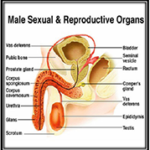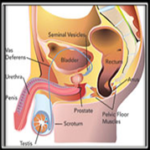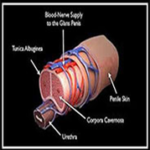Circumcision
Circumcision is the surgical removal of the foreskin (Prepuce); a small flap of skin that covers the tip of the penis. It is a ritual obligation for Jewish boys, and is also a common rite among Muslims. Muslims account for the largest share of circumcised men worldwide
FUNCTIONS OF FORESKIN
The foreskin protects the head of the penis throughout life from contamination, friction, drying, and injury. It is an integral, natural part of the penis, & not an ‘extra’ part of the penis. The foreskin enhances sexual pleasure. It is supplied with specialized nerves that are important to natural sexual function and experiencing the full range of sexual sensations.” The foreskin also increases sexual pleasure by sliding up and down on the shaft, stimulating the glans by alternately covering and exposing it. This can occur during masturbation or intercourse. The foreskin provides sufficient skin length to accommodate penis growth and allows for comfortable erections.
CARE OF THE FORESKIN
The foreskin requires no special care during infancy. It should be left alone. Attempts to forcibly retract it are painful, often injure the foreskin, and can lead to scarring. The foreskin can be retracted while bathing, and the inner surface of the foreskin will usually be visible and can be cleaned with water along with the rest of the body.
IS A CIRCUMCISION SAFE?
Circumcision is generally a safe surgical procedure if performed by a qualified surgeon under strict aseptic conditions.
IS CIRCUMCISION NECESSARY?
Parents should talk with their doctor about the benefits and risks of the procedure before making a decision regarding the circumcision of a male child. Other factors, such as your culture, religion, and personal preference, will also be involved in your decision. Ask Online Sexologist Near Me& get sexual problems resolved.
BENEFITS OF CIRCUMCISION
There is some evidence that circumcision has health benefits, including:
A decreased risk of urinary tract infections and sexually transmitted diseases in men, Protection against penile cancer, Prevention of balanitis (inflammation of the glans), balanoposthitis (inflammation of the glans and foreskin), phimosis (the inability to retract the foreskin) and paraphimosis (the inability to return the foreskin to its original location). Circumcision also makes it easier to keep the end of the penis clean. Consult for Online Sexologist Near Me at Kayakalpinternational.
Note: Some studies show that good hygiene can protect the penis, from infections even if the penis is not circumcised. Also using a condom during sex will help prevent STDs and other infections
WHEN IS A CIRCUMCISION ADVISED?
Conditions like phimosis, Paraphimosis, Acute paraphimosis, pain with erection or during intercourse, recurrent balanitis and posthitis, preputial neoplasms, and tears in the frenulum are medical indications for adult circumcision. Non-medical reasons may be social, cultural, personal or religious.
POSSIBLE COMPLICATIONS OF CIRCUMCISION
Like any surgical procedure, there are risks associated with circumcision like Pain, bleeding and infection at the site of the circumcision, Irritation of the glans.
CIRCUMCISION SURGERY PROCEDURE:
Adult circumcision can be performed under local anesthesia

During a circumcision, the outer layer of the foreskin around the penis is cut (A). The foreskin is pulled away (B), and the remaining membrane is cut away (C). Sutures are used to stitch the area (D). POSTOPERATIVE CARE IN ADULTS
Wound dressing is done which should be removed after 24 to 48 hours after checking that there is no bleeding or oozing. Then no further dressing is necessary, and the patient should be instructed to wear loose-fitting briefs. and gently wash the wound daily for the next five to seven days. After that, he may shower regularly. Get online sex consultation from the Online Sexologist Near Me. Complete abstienence (no sexual relationship) for four to six weeks to prevent the breakdown of the wound.






